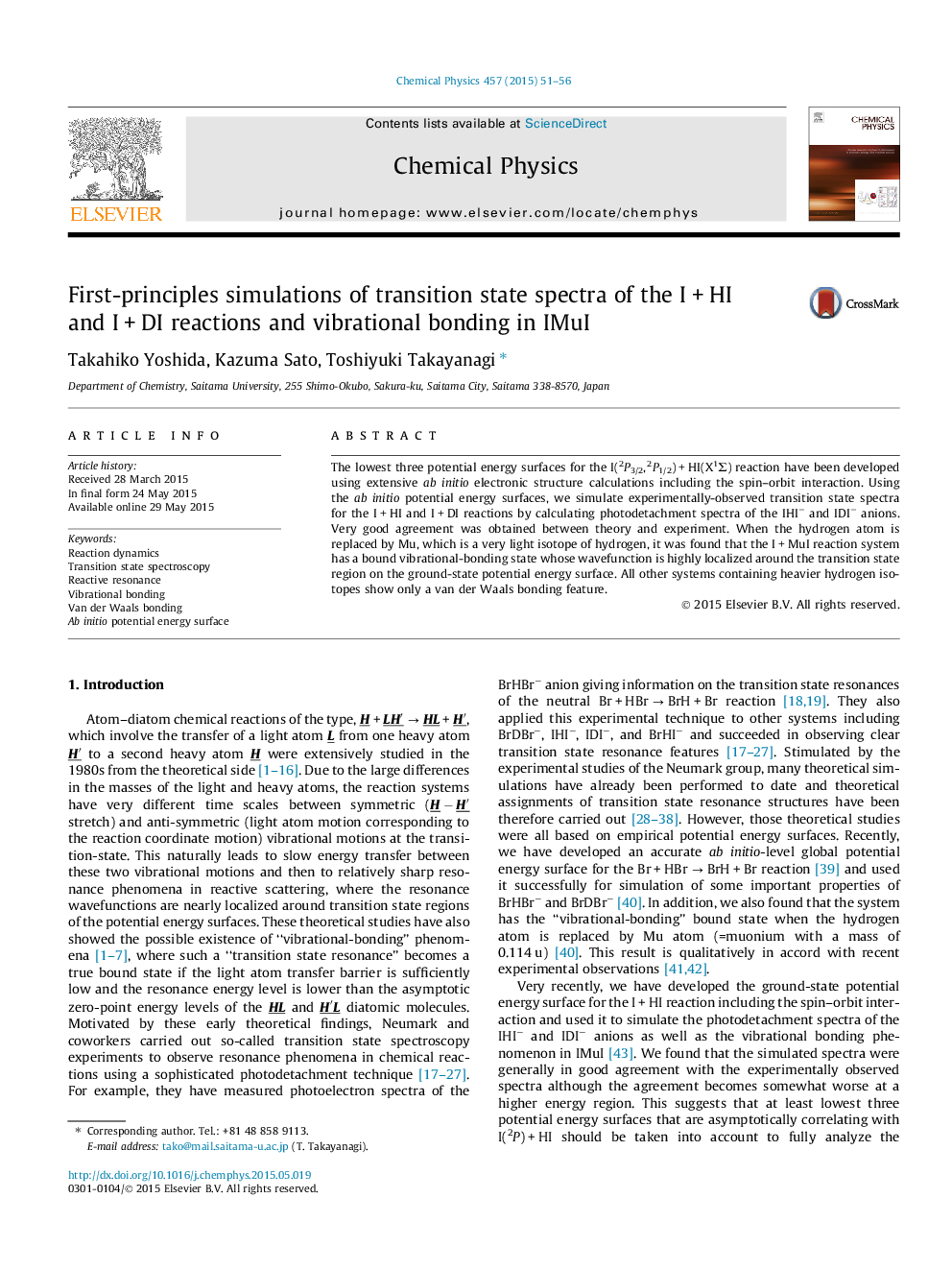| Article ID | Journal | Published Year | Pages | File Type |
|---|---|---|---|---|
| 5373317 | Chemical Physics | 2015 | 6 Pages |
â¢Ab initio low-lying potential energy surfaces for the I + HI reaction.â¢Transition-state spectra of the I + HI and I + DI reactions are simulated.â¢Ground-state potential energy surface supports I-Mu-I vibrational bonding state.
The lowest three potential energy surfaces for the I(2P3/2, 2P1/2) + HI(X1Σ) reaction have been developed using extensive ab initio electronic structure calculations including the spin-orbit interaction. Using the ab initio potential energy surfaces, we simulate experimentally-observed transition state spectra for the I + HI and I + DI reactions by calculating photodetachment spectra of the IHIâ and IDIâ anions. Very good agreement was obtained between theory and experiment. When the hydrogen atom is replaced by Mu, which is a very light isotope of hydrogen, it was found that the I + MuI reaction system has a bound vibrational-bonding state whose wavefunction is highly localized around the transition state region on the ground-state potential energy surface. All other systems containing heavier hydrogen isotopes show only a van der Waals bonding feature.
Graphical abstractDownload high-res image (61KB)Download full-size image
